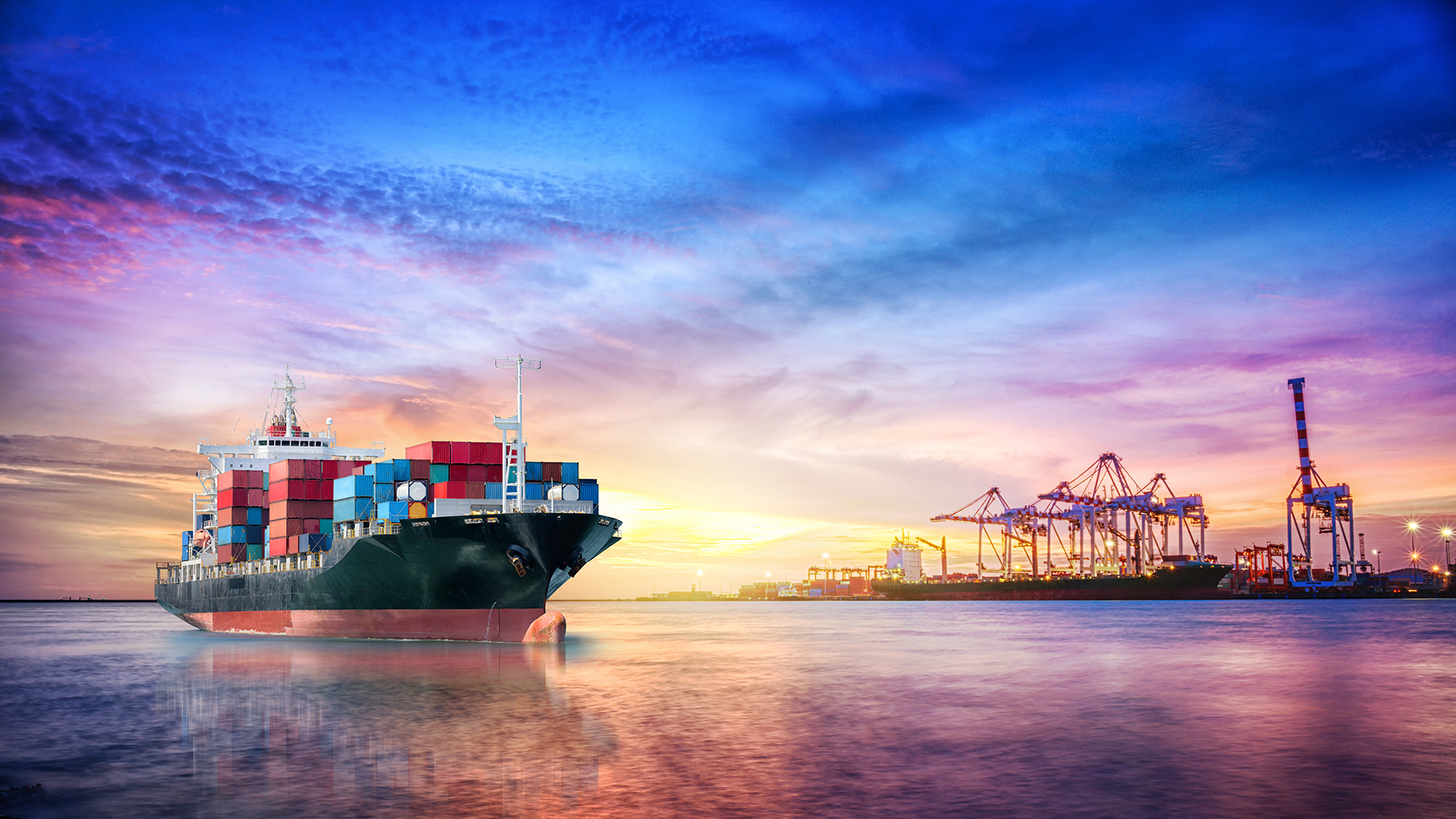Insights

US Federal Maritime Commission’s "Flags of Convenience" investigation advances
United States | Publication | September 2025
On May 22, 2025, the Federal Maritime Commission (the FMC) initiated a nonadjudicatory investigation into whether (1) the vessel flagging laws of certain foreign countries, including jurisdictions colloquially referred to as “flags of convenience,” and (2) competitive methods employed by owners, operators, agents or masters of foreign-flagged vessels, are creating unfavorable shipping conditions in United States foreign trade (the Investigation).1
The Investigation included a public comment period which ended on August 20, 2025.2 During this period, approximately 40 comments were submitted. While many comments were generally supportive of the Investigation, others expressed concern regarding the factual accuracy of certain claims made in the order of the Investigation (the Order).
In its Order, the FMC stated that some foreign nations have engaged in a “race to the bottom” to lower the cost of registering and flagging vessels and that, in doing so, these jurisdictions can no longer ensure the efficiency, reliability and safety of vessels. According to the Order, these practices may endanger the ocean shipping system and could negatively impact US foreign trade such that the development of a comprehensive and enforceable regulatory regime is necessary.
With this Investigation, the FMC aims to identify the specific laws and practices of foreign governments and owners, operators, agents or masters of foreign-flagged vessels which could create unfavorable shipping conditions in the foreign trade of the US, such that the FMC may develop a responsive regulatory regime.
In this article, we will address:
What is the authority of the FMC?
The FMC is responsible for regulating the US international ocean transportation system for the benefit of US exporters, importers and US consumers.3 Notably, the FMC is an independent federal agency (for example, the FMC is an agency that was created and exists outside the federal executive departments which are headed by a Cabinet secretary and the Executive Office of the President).
As an independent federal agency, the FMC has regulatory rulemaking authority and may implement regulations affecting shipping in foreign trade to address unfavorable conditions that result from foreign laws and competitive methods employed by owners, operators, agents or masters of foreign vessels.4
These regulations can be wide-ranging in scope and can be aimed at intermodal movements, terminal operations, cargo solicitation, agency services, ocean transportation intermediary services and operations and other activities and services integral to the transportation systems in a particular trade, on a particular route, or in commerce generally. The FMC may promulgate such regulations independently or in response to a petition of any person.
Additionally, the FMC can request that other agencies of the US government modify or promulgate new regulations that affect shipping in the foreign trade of the US, with notable exceptions related to the Public Health Service, the Consular Service or the inspection of vessels. Any such regulations promulgated by other agencies require review and approval by the FMC. If an agency refuses to comply with a request or objects to the FMC’s decision, the FMC or the head of the agency may submit the facts to the President for determination.5
What is a nonadjudicatory investigation?
To fulfill its duty to enforce laws and regulations related to ocean shipping and transportation, the FMC may conduct nonadjudicatory investigations. The FMC has promulgated rules establishing procedures for nonadjudicatory investigations. According to these rules, the FMC may initiate nonadjudicatory investigations when the FMC determines, in its own discretion, that information is required for rulemaking, policy determination or carrying out its duties, including determining whether to institute formal proceedings to adjudicate violations.6
In connection with nonadjudicatory investigations, the FMC may—but in the present case has yet to—conduct investigational hearings. Such investigational hearings are held before the FMC (or a duly designated representative of the FMC) for the purpose of obtaining witness testimony and documents which are pertinent to the applicable investigation.7 The FMC may invoke compulsory processes by issuing orders or subpoenas directing a person to appear to testify or produce evidence for any matter under investigation.8 The FMC may also order such testimony be taken by deposition at any stage of any investigation or order a person to file a report or answers in writing to specific questions.9
The FMC has designated its General Counsel to lead the Investigation and has ordered that, absent good cause for confidential treatment, all submitted comments be public.10
What is the scope of the Investigation?
According to the Order, the Investigation will focus on practices that contribute to or endanger a reliable and efficient ocean shipping system in US foreign trade. In the Order, the FMC identified the following unfavorable flagging practices:
- flags of convenience leading to lower safety, environmental and labor standards
- fraudulent ship registrations
- perpetuation of a “shadow fleet”
As noted in the Order, the FMC stated that these and similar practices create unfavorable conditions to US foreign trade by undermining the efficiency and reliability of supply chains, posing severe risks to international ocean shipping. In particular, the Order references specific marine incidents which the FMC linked to flags of convenience, including the March 2024 collapse of the Francis Scott Key Bridge in Baltimore, Maryland, US involving the MV Dali.
As of the date of publication of this article, the FMC has not targeted any specific foreign nation nor proposed any action other than the Investigation to assess foreign vessel flagging laws and identify “responsible” flagging laws, regulations, practices and proposals and “unfavorable” flagging laws, regulations and practices. In addition to these goals, the Investigation aims to determine “the benefits to international ocean shipping of responsible vessel registration and flagging practices” and “burdens to foreign nations and vessel operators or owners of irresponsible flagging practices.”
What are the key takeaways from the public comments?
Approximately 40 comments were submitted during the course of the public comment period, which closed on August 20, 2025, including submissions from major shipping companies, seafarers unions and international governments.
Many of the submitted comments expressed support for the Investigation. For example, the Seafarers’ International Union of Canada, representing Canadian seafarers working in both domestic and international trades, wrote that it “strongly supports the [FMC’s] investigation into the widespread and harmful use of Flags of Convenience … in international shipping” citing concerns including, among others, unfair competition, regulatory arbitrage, maritime safety deficiencies, substandard working conditions, wage exploitation and seafarer rights violations. These sentiments were echoed in nearly identical form letters from other seafarer organizations, including the Seafarers International Union of North America; the Finnish Seafarers’ Union; the Pakistan Seamen’s Union; the Brazilian Merchant Navy Officers' Union and the National Union of Seafarers of India. The Seafarers’ International Union of Canada is an affiliate of the International Transport Workers' Federation, a global union federation from which the FMC has specifically sought feedback on the Investigation.
Other comments expressed concerns about the Investigation, and particularly the categorization of certain flag-state registries as “flags of convenience.” The Shipping Deputy Ministry of the Republic of Cyprus noted in its comment that while it “welcomes the fact that the [FMC] gives the opportunity to interested stakeholders such as shippers, carriers, governments, intergovernmental organizations and non-governmental organizations to provide comments and relevant input on this controversial issue” it does “not appreciate the fact that the [International Transport Workers' Federation]”—which the FMC’s Order dubbed an “international standards setting organization”—“designates Cyprus as [a flag of convenience].” Likewise, the International Chamber of Shipping, which represents over 80 percent of the world’s merchant fleet through its membership of national shipowners’ associations, noted in its comment that it “strongly cautions against reliance on subjective or politically motivated criteria (such as those used by [International Transport Workers' Federation]) in assessing flag State performance.”
Along similar lines, the Republic of the Marshall Islands Maritime Administrator submitted a comment to refute a specific claim included in the Order that the MV Dali “was registered in the Marshall Islands and flagged in Singapore, with the Marshall Islands flag being one of the most commonly used flags of convenience,” asserting this claim as stated in the Order is “factually incorrect.”11 Finally, the Liberian Ship Registry, the largest flagged oceangoing fleet in the world as measured by gross tonnage, submitted a comment noting that the term “‘flags of convenience’ … has been used as a pejorative short-hand, applied to certain flag state’s registries to imply that because they are open to foreign shipowners that they are used to evade compliance with international rules and norms, and to register vessels cheaply [however], the distinction between those who require national linkage … and those which do not as a short-hand for low cost, poor quality or regulatory evasion, is no longer apt. … today, among the highest-performing vessel registries, are international flags, such as the Liberian Flag as well as the Marshall Islands Flag.”
What are the potential implications of, and next steps in, the Investigation?
As part of the ongoing Investigation, the FMC has indicated that it may request additional comments or gather information through other statutorily authorized compulsory processes, as discussed in Section II above.
If the FMC concludes that unfavorable shipping conditions exist as a result of the laws of foreign nations or the competitive methods employed by owners, operators, agents or masters of foreign-flagged vessels, the FMC may order remedial actions, which could include:
- Limiting voyages to and from US ports or the amount or type of cargo carried
- Suspending, in whole or in part, tariffs and service contracts for carriage to or from US ports
- Suspending, in whole or in part, an ocean common carrier's right to operate under any agreement filed with the FMC
- Imposing fees up to certain statutory caps
- Taking any other action the FMC finds necessary and appropriate to adjust or meet any condition unfavorable to shipping in the foreign trade of the US12
Finally, the FMC has the ability to direct the Secretary of Homeland Security to refuse the clearance of vessels which are registered or flagged in certain nations or to collect any fees that the FMC may impose as a result of the Investigation.13 The Secretary of Homeland Security, or in some circumstances the Secretary of the Navy, may also deny entry of such vessels to a port or the navigable waters of the US or detain such vessels.
Because it is uncertain what, if any, action the FMC will take at the conclusion of the Investigation, owners, operators, agents and masters of foreign-flagged vessels should continue to monitor the progress of the Investigation and any future updates regarding the Investigation and its outcome from the FMC.
Footnotes
90 Fed. Reg. 21926 (2025).
Notably, the Chairman of the FMC, Chairman Louis E. Sola, resigned from his position on June 30, 2025. With Chairman Sola’s resignation, there are now two vacancies among the FMC’s leadership, which typically consists of four Commissioners and the Chairman. Note that these vacancies should not prevent the FMC from performing any FMC functions.
About, Federal Maritime Commission.
46 U.S.C. § 42101 (2006).
46 U.S.C. § 42102 (2006).
46 C.F.R. § 502.282 (2025).
46 C.F.R. § 502.285 (2025).
46 C.F.R. § 502.286 (2025).
46 C.F.R. §§ 502.287, 502.288 (2025).
90 Fed. Reg. 21926 (2025).
On the date of the allision with the Francis Scott Key Bridge, in March 2024, the MV Dali was registered and flagged in Singapore. The MV Dali was previously registered and flagged in the Marshall Islands, but this status ended in October 2016.
46 U.S.C. § 42106 (2006).
46 U.S.C. § 42107 (2006).
Recent publications
Subscribe and stay up to date with the latest legal news, information and events . . .





